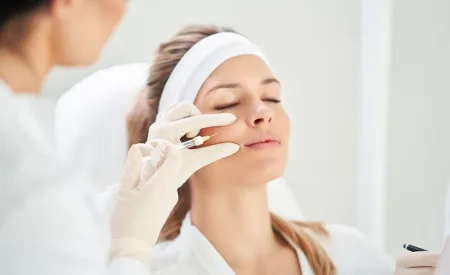As a parent, you’d probably move mountains – or at least your schedule – to keep your child healthy and happy. But while most of us don’t miss a beat with GP checkups, early dental care can sometimes slip through the cracks (pun intended). Turns out, starting your kid’s dental journey early isn’t just about avoiding “brace-face” jokes in high school – it’s a real game-changer for those pearly whites.
Now, early dental intervention isn’t just an emergency fix when the tooth fairy starts visiting too often. Think of it more as installing a top-notch security system before any trouble arrives. By learning when and how to introduce your child to dental care, you’re basically gifting them a lifetime backstage pass to healthy smiles and confident grins.
Understanding Your Child’s Dental Development
Believe it or not, your child’s teeth begin their grand entrance long before their first birthday. Teeth start forming before birth, and by around six months, one brave little tooth usually pops up, ready for action (and plenty of photos). Fast-forward to age three, and your child could be the proud owner of a full set of 20 baby teeth – perfect for chomping carrots or, let’s be honest, a few too many cookies sometimes.
These baby teeth aren’t just for show! They help your child eat, talk, and even act as tiny placeholders for their bigger, permanent replacements. If they’re lost too soon – thanks to decay, tumbles, or a taste for chewing on superhero toys – it can mean orthodontic drama down the road (think: expensive metalwork).
The tooth transition period starts around age six and drags on until the mid-teens, sort of like an extra-long awkward phase. Routine dental check-ups during these years help make sure all the new teeth erupt in an orderly fashion and give you a head start on managing any little surprises.
The Benefits of Starting Early
Got a baby with a tooth? Congratulations! It might be time for your first dental adventure – ideally by their first birthday or six months after tooth #1 shows up. Early visits mean kids can get used to the dental chair before they develop an opinion about it (or wise up to the waiting-room magazines).
Catching problems early often means you’ll dodge more complicated treatments (and the accompanying parental anxiety). Your dentist can spot tiny cavities, bite issues, or jaw quirks before they bloom into full-on tooth trouble. Plus, early fixes tend to be easier on both your nerves and your wallet.
Dental visits are great learning moments too. Dentists don’t just wield scary-looking mirrors – they can show you brushing hacks, talk snack strategy, and even help you nip thumb sucking and pacifier addictions in the bud.
Got a kid whose bite looks a bit…creative? Seeing a child-friendly paediatric orthodontist early can shrink the chance of years’ worth of metal hardware (and awkward school photos) later on. Sometimes early braces really are the lesser evil.
Supporting Good Oral Hygiene at Home
Here’s the cold, hard truth: you’re the boss when it comes to early oral hygiene! Even before those little teeth break through, swipe their gums gently with a soft, damp cloth – consider it pre-tooth training. Once those teeth appear, upgrade to a soft toothbrush and a dab of fluoride toothpaste (smear for under-threes, pea for the “big kids”).
Supervise brushing until your child isn’t treating the toothbrush like a paintbrush or a lightsabre – usually around age seven or eight. Make brushing less of a chore by singing silly songs, using timers, or creating sticker charts with epic rewards (like, say, choosing tonight’s bedtime story).
Don’t forget: what goes in their mouth matters. Limit the sugary snacks and sticky drinks, unless you want their dentist on speed dial. Water is the best drink sidekick, and snacks like cheese or crunchy veggies will get your child cheers from teeth everywhere.
Building a Foundation for Lifelong Oral Health
Let’s face it: the way kids feel about dental care sticks. Positive dental experiences (with minimal tears and zero drama) help them build habits that follow them into adulthood. That means less emergency dental work when they’re busy being grown-ups, and fewer expensive procedures for you to fret over now.
Early and regular dental care nips small problems in the bud, keeping your child’s mouth drama low-key. It’s the practical way to avoid the time, cost, and “Open wide!” pleas that major dental work brings.
Give your kids a leg-up (or should we say, a tooth-up?) by making dental health a priority from the start. Healthy habits, confident smiles, and fewer dental bills – now that’s something to smile about!



